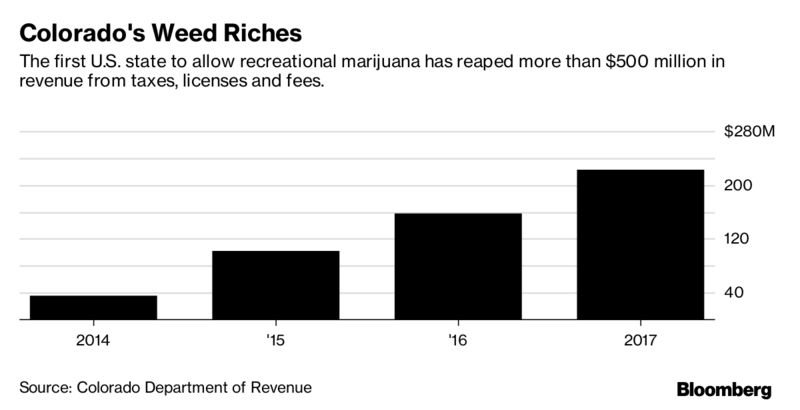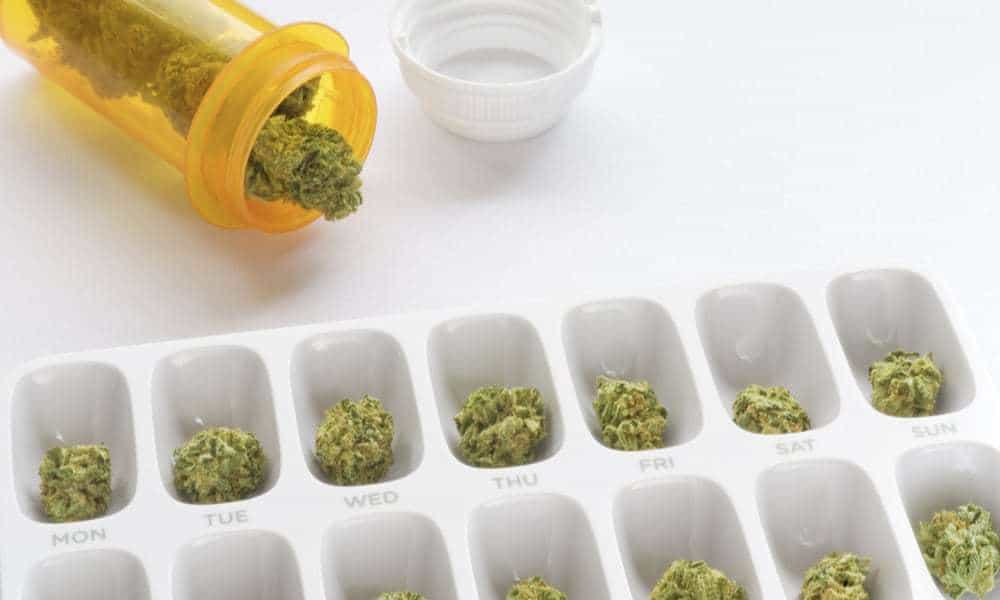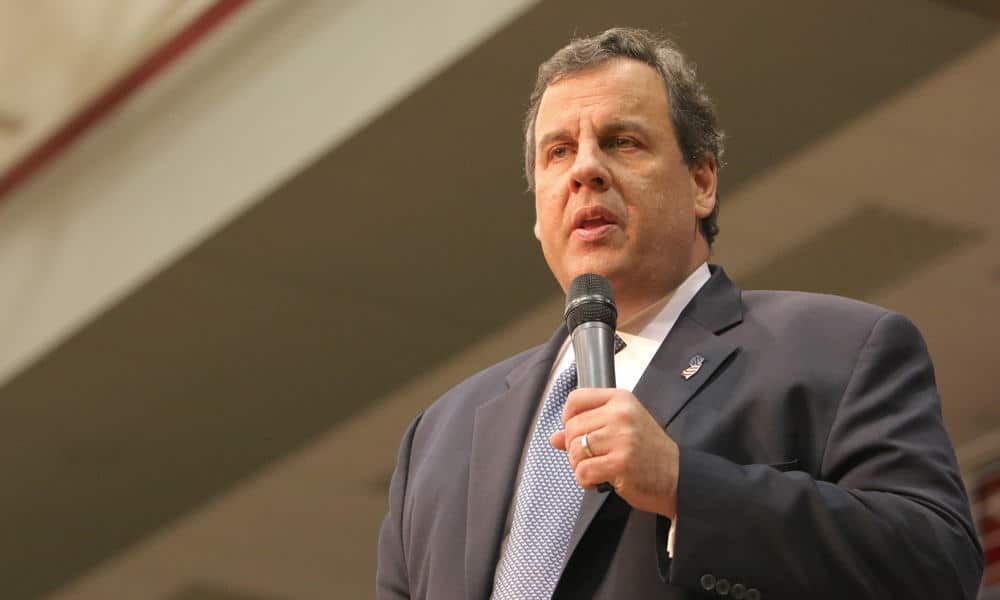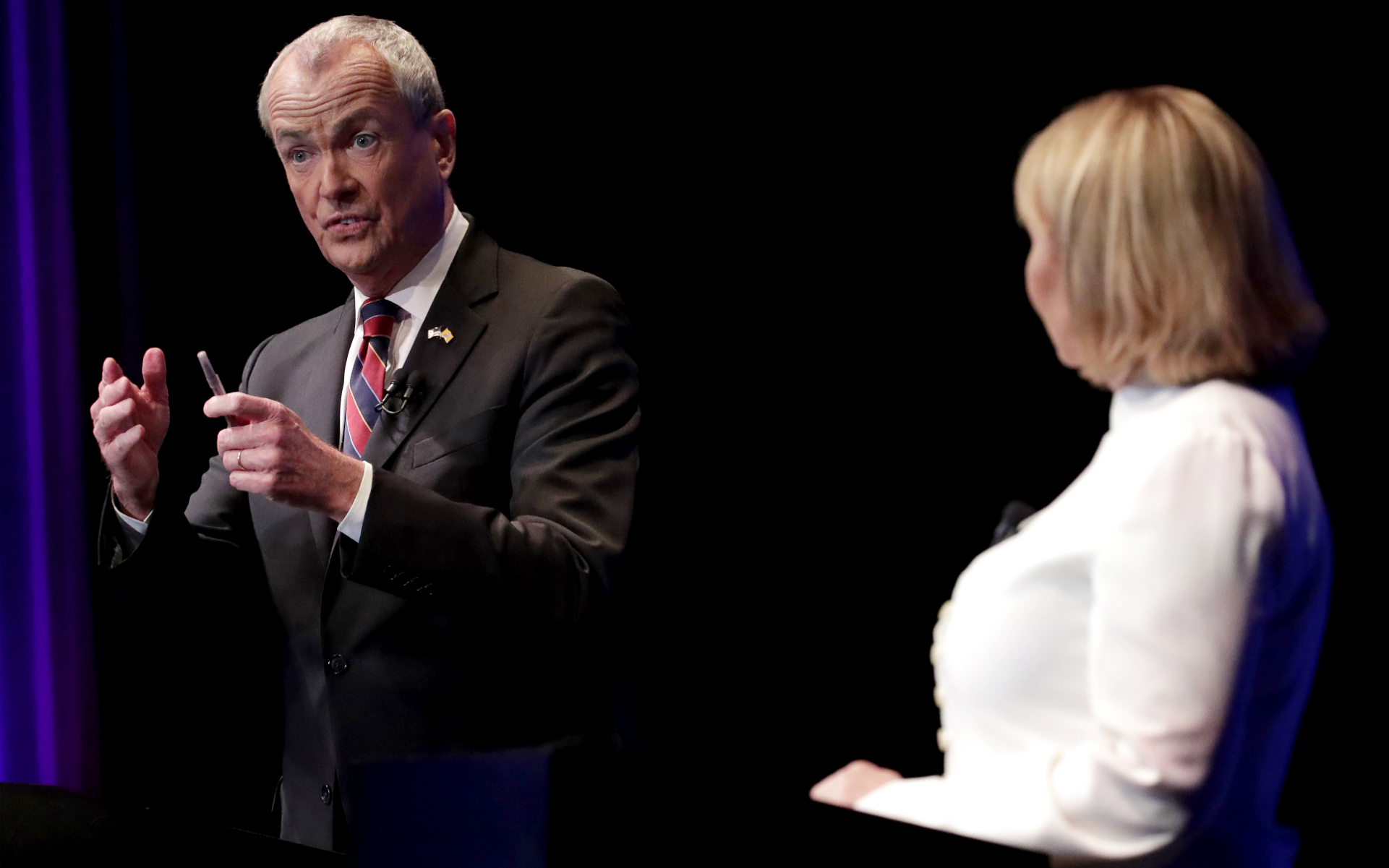If New Jersey Legalizes, Do I Have to Move Back Home?
In Jersey everything’s legal, as long as you don’t get caught.
— Bob Dylan
I grew up in New Jersey. Both my parents were born in New Jersey. All four of my grandparents lived most of their lives in New Jersey. So spare me your witticisms on the state bird (a middle finger) or the state motto (“screw you”); I’ve heard them all.
Hopefully, in the near future I’ll be able to eat Taylor Ham sandwiches down the shore while (legally) stoned on some nice Pine Barren Kush.
And youse guys ain’t as friggin’ funny as you think.
I reside in California now, but return “home” frequently to visit family and eat
Taylor Ham sandwiches down the shore while blasting early Springsteen—album cuts, not just the hits. Hopefully, in the very-near-future, I’ll be able to do so while (legally) stoned on some nice Pine Barren Kush. Because on November 7, the Garden State will elect a new governor, and the
latest polls show Democrat Phil Murphy with a commanding lead.
Murphy not only supports pot legalization, he’s promised to
sign it into law within the first 100 days of his administration. Polls show a sizable majority of New Jersey voters
favor this position, and there’s already
wide consensus among lawmakers in the statehouse to make it happen once the current governor leaves office (and more on that asshole later).
Leading NJ gubernatorial candidate Phil Murphy, seen here debating opponent Kim Guadagno earlier this month, wants to legalize cannabis. Guadagno does not.
Maybe the Phone Calls Will Stop
I’m not planning to move back anytime soon, but I’ll definitely be celebrating from afar if and when legalization happens, including making a lot of congratulatory phone calls to friends I’ve been steadily engaging in civil disobedience with over the last twenty years.
I’ll also be thinking of all the people I personally know who’ve had their lives torn apart by the War on Marijuana. I’ve been writing about cannabis since 2002, and throughout that entire run I’ve gotten two kinds of heartbreaking phone calls with shocking regularity: Somebody I know from New Jersey (or a friend of a friend, or a relative of a friend, or a friend of a relative) has gotten busted, is scared shitless, and doesn’t know who else to call; or someone has been diagnosed with cancer and is scared shitless, and doesn’t know who else to ask about medical marijuana.
It’s been my honor and privilege to help people through those harrowing moments as best I can. But it’s also been a constant and terrible reminder that the horrific injustices of cannabis prohibition rage on—not just in New Jersey, but in much of the country and most of the world. Imagine losing custody of your children for responsible cannabis use. Losing your job or getting kicked out of school or even your home.
Murphy v. Guadagno
In his first debate against Republican challenger Kim Guadagno, Phil Murphy addressed the cannabis issue head on. Legalizing cannabis, he said, should be seen primarily through a “social justice frame,” and as part of “comprehensive criminal justice reform.” Murphy pointed out that New Jersey has the
largest racial disparity in its prison population of any state in the nation.
Murphy’s opponent responded by declaring herself “wholly opposed to legalizing marijuana”—an obvious applause line that did indeed elicit a few scattered bits of clapping from the debate crowd, likely because you so seldom hear that sentiment expressed these days, when even
a majority of Republicans favor legalization. Of course, immediately after pausing for that applause, Guadagno added some major caveats and disclaimers to what started out as a clear statement.
“I do believe that we can decriminalize [marijuana], and that will solve the social justice issue that was raised,” she said. “I also would expand [New Jersey’s] medical marijuana program—it’s onerous, it’s hard to work with, [and] it’s not available to those that it should be made available to. But the one thing I would not do is legalize a controlled substance and enable drug dealers in a state where we have three times the national average of overdoses as a result of [drugs].”
You know, we have a word for “reasoning” like that in NJ.
We call it
bullshit.
Lemme Tell You Somethin’…
For starters, its “drug dealers” that sell cannabis now, and its “drug dealers” that would be put out of business by a robust system of legal sales in the state. (No offense to NJ’s many fine ethical underground cannabis suppliers). Also, nobody’s
ever fatally overdosed on cannabis, because it is
literally impossible to do so.
Such illogic and false premises are sadly par for the course in America’s great cannabis debate.
What struck me as truly perverse about Guadagno’s statement is that she simultaneously wants credit for being “wholly opposed to legalization”
and for solving “the social justice issue” by decriminalizing cannabis and making sure medical patients have access. It reminded me of a classic Steve Martin bit from
Saturday Night Live.
“I used to smoke marijuana,” Martin said in a 1978 monologue that’s sadly not on Youtube. “But I’ll tell you something: I would only smoke it in the late evening. Oh, occasionally the early evening, but usually the late evening—or the mid-evening. Just the early evening, midevening and late evening. Occasionally, early afternoon, early midafternoon, or perhaps the late-midafternoon. Oh, sometimes the early-mid-late-early morning… But never at dusk.”
‘A Good Networking Opportunity’
Kim Guadagno currently serves as lieutenant governor to Chris Christie, her political mentor, the state’s outgoing governor and one of America’s most outspoken opponents of legalizing cannabis.
“We’re in the middle of an opioid crisis,” Christie told the press back in August, when asked about legalization. “Do we want to send a message that other drugs are okay to take? I just don’t understand the logic there.”
Perhaps “the logic” is that different substances have different risks and benefits. That’s why people don’t stop taking their cholesterol medicine when they see a heroin junkie lying in the street. There, I solved it for you.
But now that you mention it, let’s talk about that opioid crisis. Because Christie is the governor of a state that’s, by any measure, the center of the world’s pharmaceutical industry. When he ran for President in 2016, his campaign received
$441,100 in support from Big Pharma, more than Donald Trump. Now he’s chairing Trump’s
Commission on Combating Drug Addiction and the Opioid Crisis.
A former federal prosecutor and a self-styled “tough guy,” Christie’s approach to taking on Big Pharma so far involves cordially inviting pharmaceutical industry executives to testify before the commission about all the wonderful new profitable drugs they’ve got lined up to help you kick the deadly and addictive drugs they just got everybody hooked on.
As we say in NJ,
I shit you not.
USA Today
obtained emails showing the executives invited to testify were promised “a good networking opportunity.” When interviewed for a story about how his long and deep ties to the pharmaceutical industry influence his decisions as chair of the opioid commission, Christie spun it as a positive.
“I think that the fact that I have these relationships helps,” Christie told USA TODAY. “Because they know I’m a guy who cares deeply about this issue, and [since] I’m someone they have a long history with, they all came.”
They all came.
https://www.leafly.com/news/strains-products/what-are-pre-filled-cannabis-oil-vape-cartridges
‘NJ Making More Arrests Than Ever’
Big Pharma used
every trick in the book to get as many people as possible addicted to incredibly dangerous drugs, pocketing
massive profits in the process, and the guy in charge of cleaning house is bragging because the kingpins of this massive manufacturing and distribution operation actually did him the honor of showing up in person to his “networking opportunity.”
Police agencies spend $143 million annually on marijuana enforcement in NJ, which doesn’t include lost tax revenue and other societal costs. 90% of arrests targeted users rather than dealers.
Excuse me, Mr. Governor, but I know people in New Jersey who got busted because of a roach in an ashtray. Who were set up by snitches over a half-ounce of weed supposedly sold among friends. Who had their door kicked down in the middle of the night by police officers with their guns drawn because their neighbors down the hall complained about the smell from a few bong hits.
A
just-released report from the ACLU shows that “New Jersey is making more arrests for marijuana possession than ever in a manner that is more racially disparate than ever.” The report estimates police agencies spend about $143 million annually on marijuana enforcement in NJ, which doesn’t include lost tax revenue and other societal costs. Around 90% of arrests targeted users rather than dealers.
So basically,
fucking with people, at the most granular level.
Ignoring Cannabis in the Opioid Report
Contrast that with the Opioid Commission’s
interim report, which emphasized “partnerships” with the pharmaceutical industry, and touted industry-friendly measures like federal money for research (which Big Pharma will pocket), better Medicare and Medicaid coverage for addiction treatment (so taxpayers, not industry, bears the financial burden of addiction), and broader access to naloxone drugs for first responders to treat overdoses (so Big Pharma’s best customers don’t keep dropping dead all of a sudden).
At a press conference announcing the release of the interim report, Christie boasted that the commission had received “more than 8,000 comments from the public,” calling the high volume of responses an “indication there is a real passion out there in the country for getting this done.” But he neglected to mention that
the vast majority of those public comments urged the commission to look at the
growing evidence that cannabis can be a valuable tool in the battle against opioid abuse, nor did the report itself address cannabis in any way.
Christie will leave office as governor with approval numbers well below 20%, but nonetheless he has high hopes of failing upwards, either as the nation’s next Drug Czar or perhaps—why not?—as a lobbyist for his good friends at Big Pharma.
New Jersey Roots
The idea that New Jersey might move directly from this sorry state of affairs to full recreational cannabis legalization gives the impression of rapid change, when in reality it’s the result of slow-and-steady work done by countless dedicated activists over many decades. Occasionally, these advocates make headlines—like the father of a two-year-old with epilepsy who
confronted Chris Christie at a 2013 campaign stop, saying “Please don’t let my daughter die, Governor”—but for the most part it’s thankless work. So let me take this opportunity to publicly say
thank you, on behalf of myself and many others who will directly or indirectly benefit.
To brush up on that relevant history, and talk over old times, I called up Rick Cusick, my former colleague at
High Times (he was associate publisher), the officiant at my wedding, a board member of
NJ NORML, a lifelong New Jersey resident, and now one of the brains behind
Whoopi and Maya, Whoopi Goldberg’s medical cannabis company.
Cusick started our conversation by taking me through every
dirty trick and
broken promise Chris Christie used to delay and subvert implementation of New Jersey’s medical cannabis law, resulting in the “onerous” system his protege decried in the debate.
“An old girlfriend of mine from high school is in a wheelchair because of MS,” my old smoking buddy told me, “and she still buys pot on the street, because it’s a lot less expensive and easier to get.”
Cusick started getting high in the 1970s in East Orange, NJ, where he was well known around town as the son of a local police detective. He saw firsthand the racial disparity in cannabis policing. He also felt a target on his own back, along with the weight of keeping his love for Mary Jane a secret from his old man.
“Hiding that you were smoking weed, or that you were stoned, was often as intense as the high itself.”
That really hit home. I started using cannabis to deal with anxiety and it worked, except that I had to add a whole new worry: getting arrested.
I’ve been in California for seven years now,
long enough that every cell in my body has replaced itself. I live in one of the most cannabis-friendly communities in the country. I am literally totally legally puffing on a bowl right now as I write this, sitting in my backyard, listening to my neighbor taking dabs and coughing. And yet I still carry that old, intractable sense of fear with me, which must have worked its way right into my DNA.
I cried the day I got my first medical cannabis recommendation in California. And I fully expect to do so again the first time I walk into a store in New Jersey, show them my driver’s license, and walk out with a few grams of Pine Barren Kush.




